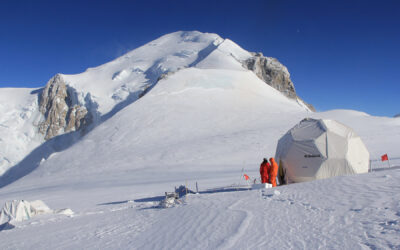South Lake Tahoe, CA (May 20, 2019) – With apps like iNaturalist and Instagram hashtags like #trashtag trending, there are increasingly more ways for budding citizen-scientists to contribute data, report concerns and get involved in ongoing research. Now, thanks to a newly updated “Citizen Science Tahoe” app created by the University of California, Davis’ Tahoe Environmental Research Center (TERC) in collaboration with the Desert Research Institute and the League to Save Lake Tahoe, locals and visitors alike can be involved in Lake Tahoe science and protection efforts.
Today, the coalition of science-based organizations unveiled an updated and more user-friendly version of the “Citizen Science Tahoe” app designed and developed by Joinify Visitor Guides.
“Locals and visitors can join Tahoe’s largest community-powered science project,” said Heather Segale, Education and Outreach Director of UC Davis’ TERC. “Be a part of our citizen scientist community and help us understand conditions around the lake by sharing what you observe. It’s free, fun, and you can help Lake Tahoe.”
The app, originally developed by UC Davis in 2016, now allows users to report on Lake Tahoe beach conditions like algae, water quality, trash, and stormwater pollution. Users of the original app will need to create a new account with email and password or choose to report anonymously.
“Science is something that everyone can be a part of,” said Zack Bradford, natural resource manager at the League to Save Lake Tahoe. “Download the app and within minutes become part of a network of citizens working together to collect data and report significant findings that help us better understand and protect Lake Tahoe.”
In the spring and summer, users can participate in the League’s Eyes on the Lake program and report sightings of aquatic invasive weeds like Eurasian milfoil or curlyleaf pondweed. This data feeds directly to the League’s team of experts who monitor and identify problem areas in the Lake and work to find innovative solutions to stop the spread of these invaders.
In the winter, users can submit photos of snow crystals to “Stories in the Snow.” The photos help Desert Research Institute scientists better identify where moisture will fall and when during winter storms.
“The remarkable thing about these citizen science programs is that people can do real science with little more than the technology in their own pockets. The more community and visitor involvement we can get, the better. The Citizen Science Tahoe app is a way to broaden involvement in local science while inspiring curiosity for the world around us” said Meghan Collins, Education Program Manager at DRI.
The new “Tahoe Citizen Science” app is available for download on the Apple App store, on Google Play and can be found at citizensciencetahoe.org.
“The Citizen Science Tahoe 3 update offers significant improvements from previous versions – we’ve made it even easier to participate in citizen science,” said Zach Lyon, creator of Joinify Visitor Guides.
Media Contact:
Joanna McWilliams
Communications Manager
League to Save Lake Tahoe
This email address is being protected from spambots. You need JavaScript enabled to view it.”>joanna@keeptahoeblue.org
(530) 541-5388
###
The Desert Research Institute (DRI) is a recognized world leader in basic and applied interdisciplinary research. Committed to scientific excellence and integrity, DRI faculty, students, and staff have developed scientific knowledge and innovative technologies in research projects around the globe. Since 1959, DRI’s research has advanced scientific knowledge, supported Nevada’s diversifying economy, provided science-based educational opportunities, and informed policy makers, business leaders, and community members. With campuses in Reno and Las Vegas, DRI is one of eight institutions in the Nevada System of Higher Education.
The League to Save Lake Tahoe, also known by the slogan “Keep Tahoe Blue,” is Tahoe’s oldest and largest nonprofit environmental advocacy organization. The League is dedicated to community engagement and education, and collaborating to find solutions to Tahoe’s environmental challenges. The League’s main campaigns include combating pollution, promoting restoration, tackling invasive species and protecting Tahoe’s shoreline. keeptahoeblue.org
The UC Davis Tahoe Environmental Research Center is a global leader in research, education, and public outreach on lakes and forested ecosystems providing critical scientific information to help understand, restore, and sustain the Lake Tahoe Basin and other systems worldwide. For more information, visit https://tahoe.ucdavis.edu and follow us on Facebook, Twitter, and Instagram.


